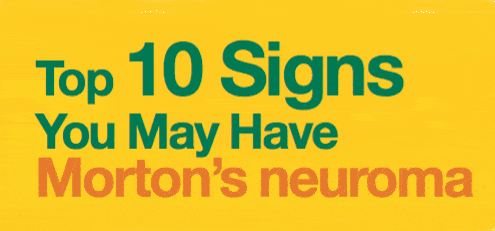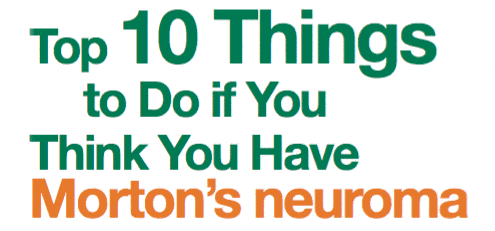We specialize in treating Morton’s neuroma. We have a nearly missionary zeal to try to cure all Morton’s neuromas. To see and hear examples of these types patients go to our testimonials. These are the most common patients that come to see us:
Yes, we can organize a video or phone consultation for you and one of our staff doctors before you see her. However, it will cost $450 for a 45 minute consultation (either video or phone). We do not accept any insurance or third party payment for a consultation and this fee will need to be paid up front.
We do this because we generally discourage these types of consultations. We discourage consultations before coming in to see us for the following reasons:
If you still want a consultation with our one of our doctors before seeing us, please contact [email protected] with your request and we will contact you to organize it. It can be a video or phone consultation.
In order to provide you with the specialist care that our dedicated Morton’s neuroma center provides, we operate as a fee for service practice that does not accept any insurance company payments (except basic Medicare). We are committed to providing personalized care and unparalleled access to a complete range of products and services specifically tailored for patients suffering from Morton’s neuroma.
By not accepting insurance, we optimize the doctor to patient ratio and allow our doctors to spend time with you, without the usual pressure of having to see a lot of patients. Our patients are only seen by our doctors and not by a Nurse Practitioner, Physician Assistant etc.
This allows us to provide the wide range of specialized services and products for our Morton’s neuroma patients. We do this because we believe that Morton’s neuroma is a complex condition. Most Morton’s patients take some time to fully clinically evaluate. We often see patients who have long histories and have had multiple procedures and operations for their Morton’s neuroma before coming to us. In addition, we have our own protocols for Morton’s procedures and these must be done carefully and can take a lot of time.
To make this work for us, we do not accept insurance payments and we limit the number of patients that we can see. Our doctors are all out of network for all insurance companies except Medicare. You can personally submit an out of network claim to your insurance company.
Yes, you are welcome to fax, upload or post in your test results such as MRI or Ultrasound reports and your past medical history including the procedure notes from any past procedures that you may have had.
However, we will not look at any of these unless you are a current patient. The reasons for this are as follows:
You may want to tell us your history or share you tests with us in the hope that we will say: “Yes we can help you.” However, we are dealing with the human body and we cannot predict your outcome. If we prove that you have a Morton’s neuroma or Plantar Fasciitis, it is most likely that we can help you as we help the vast majority of our patients, but we cannot be sure of it and we cannot guarantee any outcome. Sharing your past tests or past medical history will not make us more likely to definitively say that we can help you.
As part of our medical services all patients are seen and treated by oner of our doctors. If you send us your test results or past medical history, we will hold them for you and have them ready to use as part of our doctor’s full clinical assessment of you and your pain.
Yes, you can call our practice ahead of time for a written quote on any services we provide.
Most patients require 2 or even 3 ultrasound guided ablations. There are no clear rules as to how many procedures you’ll need to treat your Morton’s neuroma, but here are some guidelines:
 We do not have a cookie cutter approach to your care. Morton’s neuroma is difficult to treat, but we specialize in treating Morton’s neuroma and we have a number of solutions. So if you have come and see us and have an ultrasound guided procedure but still have pain, don’t be discouraged. We have a number of ultrasound guided procedures that we can do if one does not produce the results we expect. We will stick by you and work with you to treat your Morton’s neruoma. You may need multiple procedures.
We do not have a cookie cutter approach to your care. Morton’s neuroma is difficult to treat, but we specialize in treating Morton’s neuroma and we have a number of solutions. So if you have come and see us and have an ultrasound guided procedure but still have pain, don’t be discouraged. We have a number of ultrasound guided procedures that we can do if one does not produce the results we expect. We will stick by you and work with you to treat your Morton’s neruoma. You may need multiple procedures.
After you have your procedure: We suggest mild activity for the first few days. Don’t try vigorous running or long jogs for at least a couple of weeks. If you are a marathoner, don’t resume your intensive training until about 4 weeks. After that, depending on how your foot feels, you can ease back into it. Although rare, some people may experience soreness for up to 4-6 weeks.
Your next procedure: We wait 6 weeks for the full effect of the procedure before we make a decision with you to do another procedure. If you need a repeat procedure, you can come in and have it done. In general, since you are already a patient of ours, your can come in, have your procedure and travel all on the same day. You do not need to come in for a separate evaluation visit, unless you would like to see us beforehand.
Depending on the results of your first procedure, we may repeat the same procedure or we may do a different ultrasound guided ablation procedure. If your response to our procedure has been below our expectations, we may also recommend a Platelet Rich Plasma injection done under ultrasound guidance in addition to your procedure.
We are only in network for basic Medicare. We are out of network for all other insurance networks. That means if you are a basic medicare patient we do not accept any insurance for the 20% copay which must be paid our of pocket on the day the service is rendered.
New patients must come in for an initial assessment. Based on the clinical findings and our physician’s assessment, a treatment plan is created together with the patient. In nearly all cases we perform a diagnostic injection with the initial visit. If you come from out of town, your Morton’s ablation procedure can then be performed on that same day. We ask that patients wait at least 24 hours before traveling back home.
If the patient is recently known to us, we can do the procedure the same day without an initial assessment.
We will bill basic Medicare for the cost of your medical care. However you will be responsible for paying:
Patients can travel after waiting 24 hours after their procedure. Usually, they usually can return to work after 48 hours, if their work does not involve a lot of standing and walking.
We suggest mild activity for the first few days and then ease back into your routine over a couple of weeks. Nothing with high impact to the bottom of your foot, such as jumping or long distance running for 6 to 8 weeks.
Although rare, some people may experience soreness for up to 4-6 weeks.
Most podiatrists are trained in performing Morton’s neuroma surgery. Some do cortisone injections (mostly without ultrasound guidance) and some may do cryoablation or radio frequency ablation.
We do not know of any podiatrist or any place that uses ultrasound guidance and also offers cryoablation, radio frequency ablation and neurolytic ablation procedures for the treatment of Morton’s neuroma and Plantar Fasciitis. In complex situations, we may also use a nerve stimulator to identify the exact location of the nerve.
We specialize in the treatment of Morton’s neuroma and Plantar Fasciitis.
No. An ablation procedure cannot cause a stump neuroma. A stump neuroma is caused by the body’s normal response to a cut nerve. This response is call a Wallerian degeneration. Nearly all Morton’s neuroma surgeries result in a cut nerve and therefore a stump neuroma is a very real complication.
An ablation procedure does not cut the nerve. Instead, it kills the nerve while leaving the nerve sheath and nerve fibers intact. This difference is key and is the reason why the body does not have a true Wallerian reaction to an ablation procedure and therefore a stump neuroma cannot occur.
For more information about this and about Wallerian degeneration in Morton’s neuroma procedures Click here.
We do not make any recommendations and we don’t know of anyone else that does what we do.
We specialize in treating Morton’s neuroma and Plantar Fasciitis.
See our blog article for a discussion of whether you should have surgery for your Morton’s neuroma – Click here


By providing us with your information you are consenting to the collection and use of your information in accordance with our Terms of Service and Privacy Policy.